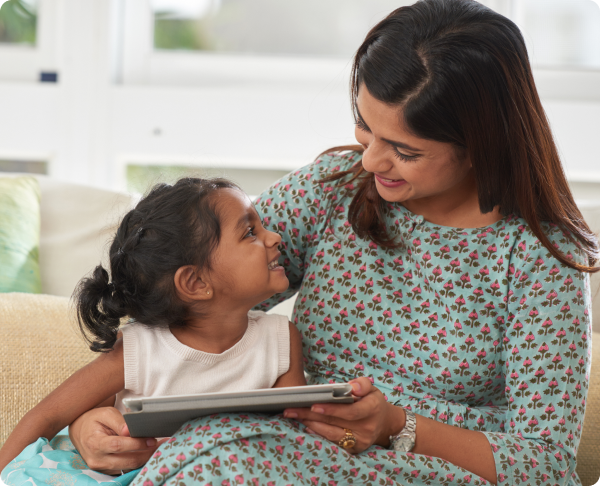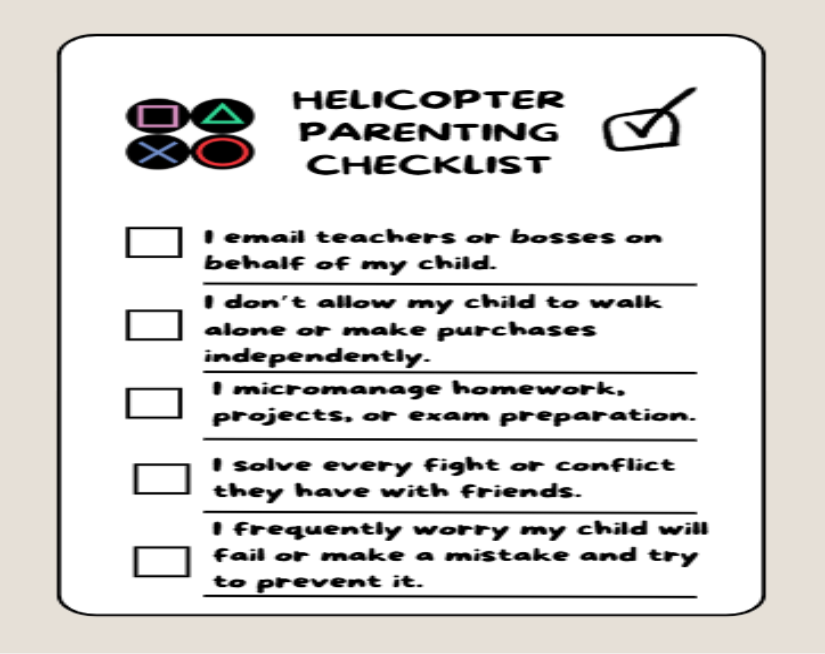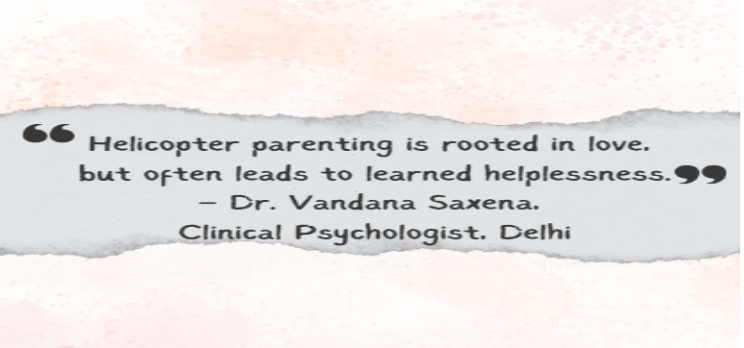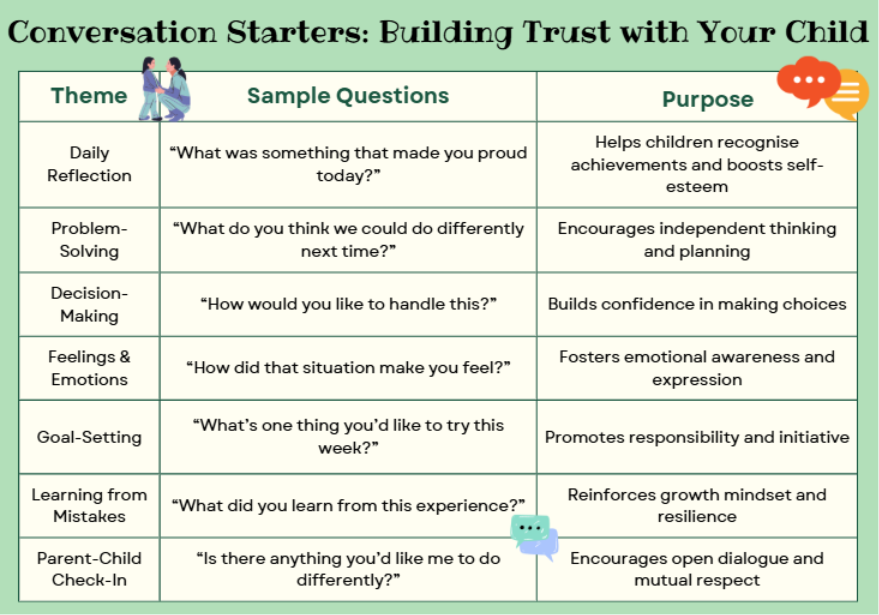Parenting Challenges
Helicopter Parenting in India: How Much Is Too Much?

.png)
Written by
Aarohi Parakh,
Psychologist and Content Writer

Reviewed by
Sanjana Sivaram,
Psychologist and Clinical Content Head

Introduction
Do you remember Kajol’s character from the movie Helicopter Eela? She is shown as an overprotective mother who wants to know everything happening in the life of her college-going son. She tracks his every move, packs his ‘dabba’ for college, participates in his music jamming sessions, and even enrols herself in the same class as him.
To her, it feels like love — staying involved so that her son doesn’t fall behind. But somewhere between helping and hovering, the love begins to feel heavy. This phenomenon has a name: helicopter parenting. No wonder the filmmakers came up with a suggestive title for the movie.
In Indian households, especially in urban cities, this fine line can easily blur. Parents want the best for their children in education, emotional safety, and success in an ever-competitive world. Yet, in trying to protect them from failure, they may unintentionally take over their choices, schedules, and even emotions.
In this blog, we’ll explore what helicopter parenting looks like in the Indian context, its signs and effects, and how parents can nurture independence while staying emotionally connected. Parenting isn’t about letting go — it’s about holding space for growth.
What is Helicopter Parenting?
Definition
Coined in 1960s, “helicopter parenting” describes a style where parents hover excessively over their children’s lives, showing high involvement, protection, and control.
Behaviours
Common signs of helicopter parenting include:
- Constant monitoring: Keeping track of every assignment, message, social media interaction, or internet history
- Over-scheduling: Filling their day with tuition classes, extracurriculars, and structured activities, leaving little space for rest or exploration.
- Rescuing from failure: Quickly stepping in to solve problems — forgotten homework, missed deadlines, or relationship issues.
- Intervening in conflicts: Managing every disagreement rather than helping children develop coping and problem-solving skills.
- Anxiety about success: Excessive worry about their performance in academics, sports, work, or social life.
Origin of the term
The term appeared as early as 1969 in the bestselling book Between Parent & Teenager by Dr. Haim Ginott, mentioning a teen who complained: "Mother hovers over me like a helicopter…" It gained wider attention in America in the 2000s, as education systems grew more competitive and parents became increasingly involved in their children’s daily schedule and success.
Indian Context
In India, helicopter parenting often takes on culturally familiar forms, where involvement is seen as an expression of love and duty. However, increasing academic competition, growing safety concerns, and information overload through the internet have heightened this involvement.
Some everyday examples include:
- Deciding on career or degree choices.
- Managing college admission processes on their behalf.
- Checking up on whether they have eaten or not.
- Regularly monitoring tuition teachers or online classes.
- Mandatory daily voice or video calls.
- Directing children on friendships.
- Speaking on behalf of teens or young adults in decisions.
While these patterns are rooted in care, they can severely diminish young people’s ability to become confident, responsible, and independent.
🗣️ Helicopter parenting isn’t only about caring too much — it can be about finding the balance between guiding and letting grow.
Why Do Parents Helicopter?
Behind overinvolved parenting lies good intention — an innate desire to protect and guide. Helicopter parenting rarely starts as control; it begins as care that grows into worry about the future. Understanding the why can help us approach the behaviour with empathy and not judgement.
Causes
- Fear of failure: Across the world, many parents believe it is their responsibility to shield their children from any struggles or dire consequences. Whether it is academics, relationships, or career, they worry that failure will hurt their child’s self-esteem and social standing. The child may, however, lose the opportunity to build resilience and problem-solving skills.
- Anxiety about safety & future: Modern life seems more uncertain than ever before. Economic crises, pandemic effects, rising unemployment, and social media comparisons increase parental anxiety. This has led to greater need for parental supervision and control.
- Societal pressure to raise “perfect” children: There is a growing emphasis on performance in all aspects of one’s life. Parents often equate their child’s success with their own worth and feel peer pressure from other parents. Guilt becomes a large component of this dynamic when parents don’t see themselves as involved as others.
India-Specific Factors
- Hyper-Competitive Academics: In India, the road to success often goes through the route of exam halls — from IIT-JEE, NEET, to school board rankings and competitive entrance exams like CAT, CA, or UPSC. This environment encourages parents to remain hypervigilant, ensuring that their child doesn’t “miss out”. However, this culture of constant preparation can also lead to burnout and over-dependency.
- Social Status Linked to Children’s Success: A family’s reputation within their community is often linked to the academic and career achievements of their children. This social linkage makes parents feel personally responsible for the “outcomes” in their child’s life, driving the urge to control their choices. “Respect”, “stability”, and “security” take paramount importance while making these choices.
- Joint Family Expectations and Comparison Culture: Extended families or close-knit communities run in the fabric of Indian culture. Consequently, parenting decisions are often judged. Comparisons between siblings, cousins, and even neighbours are very common, amplifying the pressure on parents to prove they are doing “enough”. This leads to greater interference in the child’s life.
- Parental Overcompensation: For some parents, hovering comes from their own unmet dreams or economic struggles. Adults who felt neglected, unloved, or ignored as kids can overcompensate with their own children. In their attempt to give them “a better life”, parents may overcorrect — micromanaging all choices, in the hope of giving them the opportunities they never had.
🗣️ Helicopter parenting, at its heart, is rarely only about control — it’s about fear, love, and the hope of protecting children from pain. The challenge lies in learning to guide without taking over.
Signs You Might Be a Helicopter Parent

Recognising the signs that you maybe hovering is the first sign towards finding a healthier balance. Take a moment to reflect — check Yes (√) or No (×) for each statement:
How to Interpret Your Score:
- 0–1 Yes (√): You’re generally supportive without overstepping.
- 2–3 Yes (√): You hover occasionally; small adjustments can encourage independence.
- 4–5 Yes (√): You may be exhibiting helicopter parenting behaviours — it could help to step back and let your child make more decisions.
🗣️ Self-awareness is the first step — noticing these patterns allows you to support your child’s growth without overstepping.
Effects on Children: What the Research Says
Research indicates that excessive hovering can affect a child’s development. Parents can find a balance between guidance and autonomy by recognising the consequences of helicopter parenting.
Mental and Emotional Impact
Children of helicopter parents could have lifelong effects on their anxiety and depression levels. Because parents anticipate and solve problems for them, these children often struggle with:
- Poor self-regulation and coping skills — they are less experienced and feel incompetent at managing stress or setbacks independently. They may exhibit aggression as a coping mechanism.
- Fear of failure and risk aversion — avoiding challenges to prevent mistakes or parental disapproval.
- Delayed decision-making abilities — irrespective of their age, children should learn how to make decisions. However, procrastination arises when choices are consistently made for them.
🗣️ Over-involvement can inadvertently signal to children that they aren’t capable of handling life’s challenges themselves.

Social & Academic Impact
Helicopter parenting also affects how children navigate social and academic environments:
- Dependency on parents for basic life decisions — from organising their school bags to managing schedules and choosing courses or clubs.
- Struggles with authority and autonomy in workplace settings — overly supervised children may find independent professional environments challenging.
- Reduced self-esteem and resilience — the lack of opportunities to fail and bounce back can weaken confidence and perseverance.
These highlight the long-term impact of helicopter parenting on child development, showing that even well-meaning control can limit a child’s independence.
India Lens
In the Indian context, the consequences of helicopter parenting are particularly visible during critical transitions:
- Reduced emotional maturity when entering hostels or college, where children suddenly face independent living and decision-making.
- Challenges with peer interaction in competitive coaching setups, such as in Kota, where intense academic pressure, peer comparison, and strong parental expectations can make it difficult for students to navigate group dynamics and healthy competition.
🗣️ Balancing care with freedom allows children to build high self-esteem, resilience, and confidence — essential for thriving both academically and socially.
Is It Ever Helpful? When Involvement Helps
Looking at what we have discussed so far, one might think that helicopter parenting is all bad! But it has a positive edge to it too. Helicopter parents are abreast of their children’s surroundings and are usually the first ones to provide support when they are struggling academically, during illness or bullying. Respectful of a child’s growing independence, this parenting style can be a powerful source of security and confidence. The key lies in understanding the difference between healthy monitoring and micromanaging.
- Healthy monitoring means being aware of your child’s world — knowing who their friends are, staying informed about daily activities, and guiding them when needed.
- Micromanaging, on the other hand, means taking over their tasks, solving every problem, and not allowing space for mistakes or growth.
Guiding Without Rescuing: A Supportive Parenting Example
Imagine a teenager struggling with an arts project in school. A helicopter parent might take charge, redo whatever the child has created, and ensure it’s perfect before submission.
A supportive parent, however, might sit beside them, asks what part feels stuck, and lets them try, fail, and learn.
This small shift helps children build problem-solving and decision-making skills, and gain confidence in their own abilities. When parental involvement focuses on empowerment rather than protection, children feel supported rather than controlled.
🗣️ Healthy parenting walks alongside children as they learn to do things themselves.
How to Let Go Without Feeling Guilty
For many parents, stepping back can feel “irresponsible”. But letting go doesn’t mean you care less, it means you trust more. Finding the balance is the essence of moving from helicopter parenting to supportive parenting.
Here are some gentle, research-backed ways to let go of control while staying lovingly involved:
- Start Early: Encourage age-appropriate independence early on. Letting your child buy something at the grocery shop, packing their school bag, or talking to a teacher builds real-world confidence.
- Create Choice Frameworks: Instead of deciding for them, provide them with guided options. For example, “Would you prefer to try football or music?”. This offers autonomy within safe boundaries — avoiding the trap of overprotective parenting.
- Encourage Problem-Solving: When problems arise, instead of offering solutions, ask them “What do you think we should do?”. This gentle shift encourages problem-solving rather than dependency.
- Resist Overhelping: Let them face small failures — losing a match or getting scolded by the teacher — while knowing that you are there for support. These experiences teach coping skills better than any lectures.
- Model Self-Regulation: Children often learn from what they see. Showing them how you manage stress, apologise, or come out of an adverse situation teaches them self-regulation.
💬 Letting go isn’t losing control — it’s helping your child find theirs.
Rebuilding Trust and Confidence (For Both Parent & Child)
Every small step towards rebuilding trust and confidence (in both parent and child) is important:
- Shift from Fear to Trust: The belief that “my child will fail without me” should be replaced with trust that they will learn, adapt, and grow regardless.
- Replace Control with Coaching: Instead of giving instructions, ask open-ended questions like “How would you like to handle this?” This ensures a shift from control to connection.
- Foster Emotional Safety: Creating a safe space for sharing without any judgement, showing empathy, and actively listening to them
💬 Trust builds confidence; confidence builds independence.
India in Focus: Cultural Expectations vs. Individual Growth
In India, parenting often walks a delicate line between care and responsibility. Unlike the Western emphasis on independence, Indian families value closeness, guidance, and shared decision-making. While this interdependence can foster support, it can also mount pressure. Children hear phrases like “Become a doctor” or “Engineering is a prestigious choice”, or are often compared to “Sharmaji ka beta” — the ever-successful neighbour’s child. These patterns rooted in culture, can sometimes tow the line to helicopter parenting. Yet, urban parents are gradually redefining styles — fostering autonomy while maintaining emotional support. The goal: raise self-aware, resilient, and fulfilled children, not just successful ones.
Quote Box

FAQs
Q1. Is helicopter parenting the same as being involved?
No. Healthy involvement supports and guides, while helicopter parenting controls and limits independence.
Q2. Is it only a problem with school-age children?
Not at all. It can continue into teenage and even adult years — especially around academics, career, and relationships.
Q3. How do I know when I’ve crossed the line?
If you find yourself solving problems your child can handle or making decisions for them, it’s time to step back.
Q4. Can I stop helicopter parenting if I’ve already started?
Yes. Change begins with awareness. Start small by listening more, giving less advise, and allowing safe mistakes.
Q5. Are Indian parenting styles more controlling by nature?
Traditionally, Indian families value guidance and protection. But modern parenting is evolving — many parents now balance closeness with independence.
Conclusion: From Hovering to Empowering
Helicopter parenting doesn’t mean you’re a bad parent — it simply signals a need for balance. Learning to step back, while staying supportive, allows children to grow develop confidence, independence, and resilience.
Take a moment to reflect: “What’s one decision today I can let my child make on their own?”
Parenting is a journey, and seeking guidance is a strength. If you need support in making this transition, our counsellors at 1to1help.net can provide personalised strategies to nurture trust and autonomy.
💬 Empower your child, and in doing so, empower yourself as a parent.
Resources
- Self-Assessment Checklist: “Am I a Helicopter Parent?” Psychology Today Helicopter Parent Test
- Letting Go Toolkit: Age-Appropriate Responsibilities

Tips for Using the Toolkit
- Start small — pick 1–2 tasks per week to delegate.
- Encourage decision-making first, perfection second.
- Praise effort and learning, not just outcomes.
- Combine with open-ended questions from your conversation toolkit to build trust.
💬 Delegation isn’t about stepping back — it’s about stepping alongside your child as they grow.
- Conversation Starters: Building Trust with Your Child

Use these open-ended prompts to encourage children to think independently, reflect, and share honestly:
Tips for Using These Starters
- Ask 1–2 questions per day instead of overwhelming your child.
- Listen actively, without interrupting or correcting immediately.
- Avoid judgment; focus on curiosity and support.
- Pair questions with age-appropriate responsibilities from the Letting Go Toolkit.
💬 Small, consistent conversations build trust, independence, and emotional resilience over time.
References
- DPS Warangal. (n.d.). What is helicopter parenting and how do you recognise the signs if you are one? DPS Warangal. Link
- EuroSchool India. (n.d.). Helicopter parenting: Meaning, types, examples, impact. EuroSchool. Link
- Healthline. (2023, October 3). Depression. Healthline. Link
- Mayo Clinic. (2024, April 6). Anxiety disorders. Mayo Clinic. Link
- Medium. (2020, November 28). Helicopter parenting: An Indian story. QuickTalk on Medium. Link
- MSN News. (2024, May 9). The high cost of high scores: Why India’s brightest students are burning out. MSN. Link
- News-Medical. (2023, August 23). What is helicopter parenting and why is it bad? News-Medical.net. Link
- Parents. (n.d.). Bully-proof your child: How to deal with bullies. Parents. Link
- Parents. (n.d.). How to be a good parent after a bad childhood. Parents. Link
- Parents. (n.d.). What is helicopter parenting? Parents. Link
- Parents. (2024, February 12). Autonomy-supportive: A path to healthier parenting. Parents. Link
- PubMed Central. (2022). Parenting styles and their effects on mental health: A review. Frontiers in Psychology, 13, 9176408. Link
- PubMed Central. (2023). Parental influence on anxiety and depression in adolescents: A systematic review. Frontiers in Psychiatry, 14, 9638553. Link
- Times of India. (2024, February 10). What is helicopter parenting? Find out if you are a helicopter parent. The Times of India. Link
- WebMD. (2023, July 18). Helicopter parenting. WebMD. Link
- Wikipedia. (2024, September 12). Helicopter parent. Wikipedia. Link










